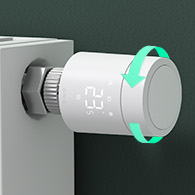Just saw this on the local news and it caught my interest. The details seem to be a little vague:
That doesn't make a lot of sense to me. From what I saw on TV, two or three walls of the house had been well and truly blown out. Something tells me that there must have been a pre-existing fault here that allowed this to happen. Entertain me for a moment, if you will...
It seems fair to assume that the tank being referred to was a hot water cylinder. If it was vented, then it's possible the feed and vent pipes could have frozen, and similarly for an unvented system the connections to the expansion vessel and PRV discharge pipe could have become blocked with ice.
In either case the water in the cylinder would be prevented from expanding, however, it should never have been able to rise above the temperature set by the thermostat and, if fitted depending on type of cylinder and heat source, the overheat cutout. The extent of damage that appears to have been caused to the house looks more akin to an explosion of superheated water, rapidly expanding to hundreds of times its original volume in a very short space of time. Again, I fail to see how this could have happened with a limited water temperature - I would suspect that the tank would simply rupture and leak in a far less explosive manner.
This is purely for my own interest and education, so all comments and theories welcome.
Our investigation leads us to believe the explosion was caused by pressure in the central heating tank which had built up behind frozen pipes.
That doesn't make a lot of sense to me. From what I saw on TV, two or three walls of the house had been well and truly blown out. Something tells me that there must have been a pre-existing fault here that allowed this to happen. Entertain me for a moment, if you will...
It seems fair to assume that the tank being referred to was a hot water cylinder. If it was vented, then it's possible the feed and vent pipes could have frozen, and similarly for an unvented system the connections to the expansion vessel and PRV discharge pipe could have become blocked with ice.
In either case the water in the cylinder would be prevented from expanding, however, it should never have been able to rise above the temperature set by the thermostat and, if fitted depending on type of cylinder and heat source, the overheat cutout. The extent of damage that appears to have been caused to the house looks more akin to an explosion of superheated water, rapidly expanding to hundreds of times its original volume in a very short space of time. Again, I fail to see how this could have happened with a limited water temperature - I would suspect that the tank would simply rupture and leak in a far less explosive manner.
This is purely for my own interest and education, so all comments and theories welcome.


